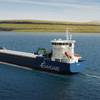Topping the agenda at the upcoming IMO Maritime Safety Committee (MSC) is, to little surprise, security. Specifically, the top line item will be the implementation of the maritime security measures adopted by IMO in 2002, when MSC meets at the in London from May 12-21, 2004.
Other important issues on the MSC agenda include the consideration of the adoption of amendments to the SOLAS and SAR Conventions relating to the treatment of persons in distress at sea; and issues related to the safety of bulk carriers and to large passenger ship safety. Following are details of the various agendas.
Implementation of maritime security measures, ISPS Code
The MSC will consider issues relating to the implementation of the maritime security measures that enter into force on 1 July 2004. In particular, the MSC will consider:
* Guidelines on Control and Compliance Measures to Enhance Maritime Security;
* aspects relating to long-range identification and tracking;
* the question of the designation of the Master as the Ship Security Officer; and
* the publication of the IMO/ILO Code of Practice on Security in Ports.
Large passenger ship safety
The MSC will review progress to date on large passenger ship safety and is expected to re-establish the ad hoc Working Group on Large Passenger Ship Safety to update the work programme, with a view to bringing the work to a conclusion.
The MSC will also consider the outcome of the work of the Sub-Committees which have been assigned tasks on large passenger ship safety and will provide clarification and /or approval on those issues upon which the Sub-Committees have sought advice.
The MSC will further consider matters related to the holistic approach to large passenger ship safety issues, in particular the preparation of casualty scenarios necessitating a return to port and timeframes related to abandonment and recovery, taking into account documents submitted to this session.
Human element
The human element is a high priority in the Organization's agenda and long-term work plan. The Committee has agreed to re-convene the Joint MSC/MEPC Working Group on the Human Element at this session.
The working group is expected to start preparing a human element strategic plan for the Organization with a view to addressing the human element in maritime safety, environmental protection and security.
Goal-based new ship construction standards
The MSC is expected to examine in detail the concept that IMO should develop "goal-based" standards for ships' construction and equipment.
The MSC is expected to consider specific proposals, by Governments and international organizations, on goal-based standards and design philosophy in order to clarify and define their meaning. The premise behind the development of goal-based standards is that IMO should play a larger role in determining the fundamental standards to which new ships are built.
There is no intention that IMO would take over the detailed work of the classification societies, but rather that IMO would state what has to be achieved, leaving classification societies, ship designers and naval architects, marine engineers and ship builders the freedom to decide on how best to employ their professional skills to meet the required standards.
At present there is no international legislation or guidance on these matters. Therefore the MSC is expected to consider the introduction of a mechanism to ensure harmonized, internationally agreed standards, under the umbrella of IMO.
Bulk carrier safety
The MSC is expected to consider a number of issues relating to bulk carrier safety, including the outcome of discussions by the DE Sub-Committee 47th session in February-March 2004 and also a proposal to review its earlier decision to make double-side skins mandatory for new bulk carriers.
Proposed amendments to SOLAS chapter XII (Additional safety measures for bulk carriers) will be considered for approval, with a view to subsequent adoption at MSC 79 in December 2004.
The draft amendments propose the replacement of the existing text of chapter XII with a new text incorporating revisions to some regulations and new requirements relating to double-side skin bulk carriers, including whether or not new bulk carriers of 150m in length and over, carrying solid bulk cargoes having a density of 1,000 kg/m3 and above, should be of double-side skin construction; and the addition of a new regulation 14 on Restrictions from sailing with any hold empty.
Carriage of immersion suits - amendments to SOLAS
The proposed amendments to SOLAS chapter III Regulation 32 - Personal life-saving appliances will make changes to the number of immersion suits to be carried on all cargo ships. The amendments are intended to introduce carriage requirements for one immersion suit per person on board all cargo ships, including bulk carriers. At present, the regulation requires carriage of at least three immersion suits for each lifeboat on a cargo ship, as well as thermal protective aids for persons not provided with immersion suits.
With the adoption of the proposed amendments, immersion suits will become, as lifejackets, a personal life-saving appliance for each person on board thus offering a better thermal protection and improved chance of survival and rescue. The MSC will also be invited to adopt related amendments to the 1988 SOLAS Protocol, including consequential amendments relating to the records of equipment.
IMDG Code amendments including security
The MSC will be invited to adopt amendments to the International Maritime Dangerous Goods (IMDG) Code. The amendments update the Code in several sections relating to the carriage of dangerous goods and include a proposed new chapter 1.4 on Security Provisions intended to address the security of dangerous goods in transport by sea.
Piracy and armed robbery against ships
The MSC will review the reports on incidents of piracy and armed robbery against ships submitted to IMO and consider developments in the implementation of the co-ordinated plan of action to tackle piracy and armed robbery against ships through regional agreements.
The number of acts of piracy and armed robbery against ships, which were reported to the Organization to have occurred or to have been attempted in 2003, was 452, an increase of 69 (18%) over the figure for 2002.
The areas most affected in 2003 (i.e. five incidents reported or more) were the Far East, in particular the South China Sea and the Malacca Strait, South America and the Caribbean, the Indian Ocean, West Africa, and East Africa. The number of acts reported to have occurred or to have been attempted increased from 140 to 156 in the South China Sea; from 66 to 98 in the Indian Ocean; from 67 to 72 in South America and the Caribbean; and from 47 to 67 in West Africa. However, the numbers decreased from three to one in the Mediterranean Sea and from 24 to 20 in East Africa; whilst in the Malacca Strait the reported figure was 34, the same as 2002.
Most of the attacks worldwide were reported to have occurred or to have been attempted in the territorial waters of the coastal States concerned, while the ships were at anchor or berthed. In many of the reports received, the crews were violently attacked by groups of five to ten people carrying knives or guns.
During 2003, 13 crew members were reportedly killed, including two passengers and six military personnel, 45 persons were wounded and 54 crew went missing. Amongst those still missing to date and unaccounted for are 11 crew members including three crew members thrown overboard. Eleven ships were hijacked and 11 went missing, whilst one ship was set ablaze and one ship was run aground.
Featured videos

Inmarsat Enhances Service to Drive Digitalization

Inside the Electrified Truckable Tug

Tracking Foreign Vessels Working in the U.S. Jones Act Market
Subscribe for
Maritime Reporter E-News
Maritime Reporter E-News is the maritime industry's largest circulation and most authoritative ENews Service, delivered to your Email five times per week








